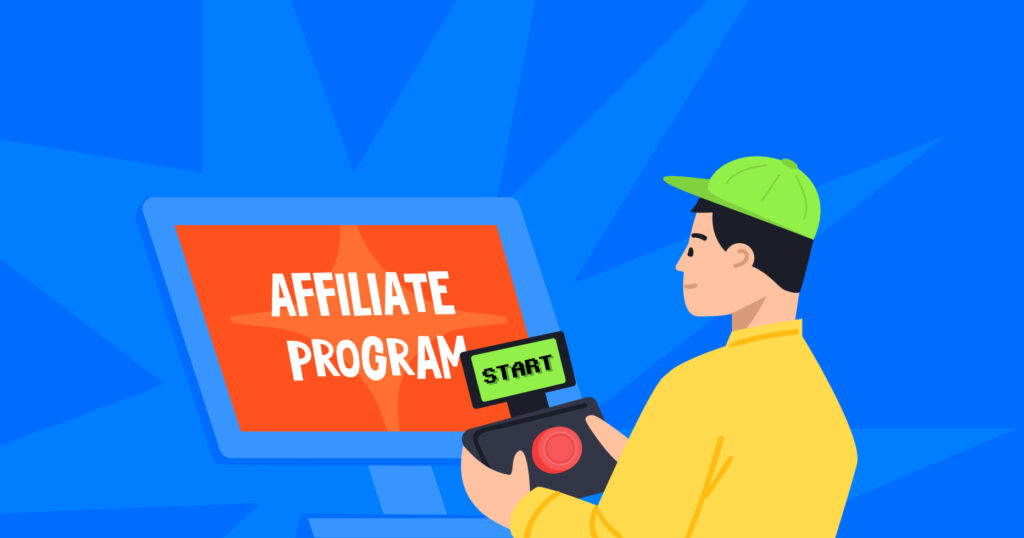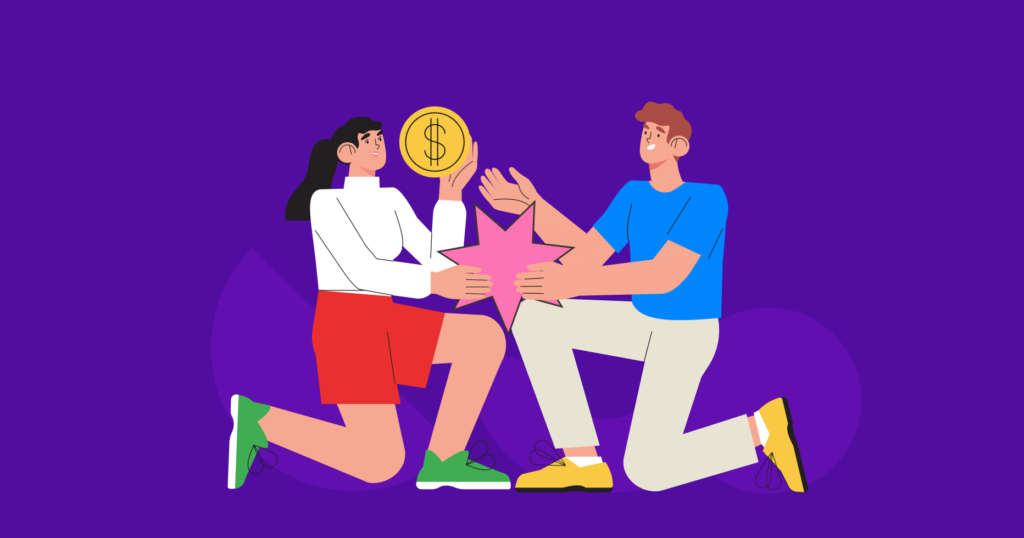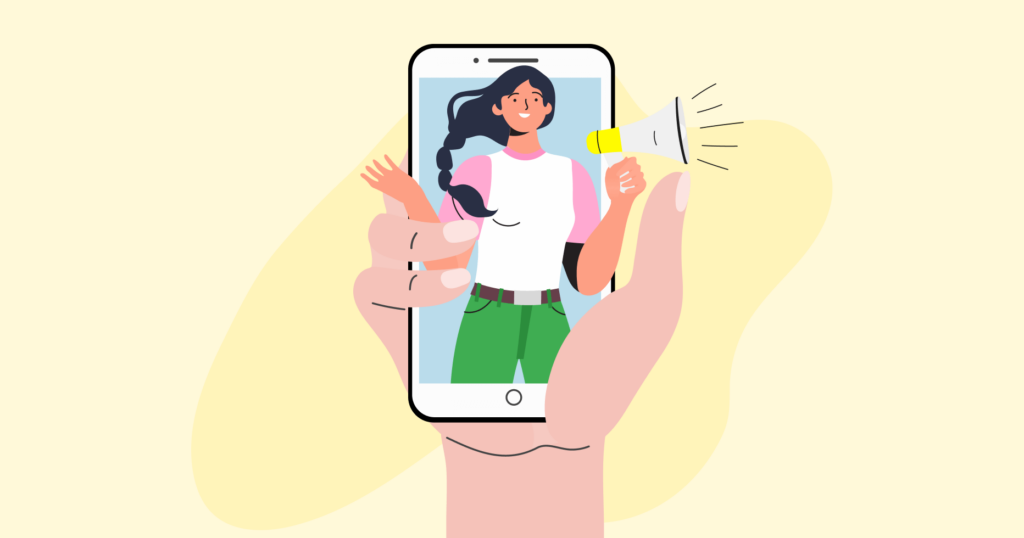Contextual advertising
Partners can buy ads directly on the brand’s website in contextual advertising networks, such as Google Ads and others. Read more about how contextual advertising works.
Contextual advertising is an attractive type of traffic for partners, as it allows them to carry out various experiments and find schemes that work, such as a situation in which for every $100 invested in advertising, a positive result is returned ($110).
By allowing partners to use this traffic source, the brand distributes some of the risks among their partners. Not every affiliate campaign ends up with a positive result for the partner. For example, a partner can spend $100 to buy advertisements from a third-party service and receive income from the sale of brand services (e.g., $90).
Partners who are engaged in contextual advertising or other traffic arbitrage take on the risks. Brands, in this case, receive traffic and sales, while paying partners only for results that have actually been achieved.
A common practice among brands in Travelpayouts, which also purchase contextual advertising on their own, is to allow partners to attract traffic through contextual advertising with the restriction that partners cannot use branded queries in their advertisements, which is called brand bidding.
However, this does not necessarily prohibit all forms of contextual advertising for a brand. Some brands also allow this sort of contextual advertising, such as Radical Storage and some others.
Content Project
Traffic from content projects is one of the most common types of traffic in Travelpayouts. Partners create various content projects, for example:
Partners create content, such as writing about travel, and then post various affiliate tools on the pages of their project and recommend the brand to their audience. For example, they could place a link to Booking.com in an article about the best hotels in Copenhagen or they could place a search form for flight tickets in an article about how to fly from Hong Kong to Kuala Lumpur.
Typically, brands allow traffic from content projects, as this allows them to get quality traffic from the right travel audience. Content projects are allowed in affiliate programs such as: Booking.com, Aviasales, YouTravel.me, and others.
Email newsletter
Some Travelpayouts affiliates have email newsletters, in which they recommend certain brands to their audience. For example, NomadicMatt (not related to Travelpayouts in any way) sends regular mailings and offers various travel information and recommendations.
Spam in any form is prohibited on Travelpayouts, therefore, by allowing partners to attract an audience via email, you can generate high-quality traffic.
Traffic from email campaigns is allowed in affiliate programs such as: Trip.com, Insubuy, QEEQ, and others.
Groups and pages in social networks
Some Travelpayouts partners maintain pages or communities on social networks. Some partners maintain a page within their content project in addition to their site, while others treat their page as an independent project. For example, virginiatraveltips.com maintains pages on several social networks at once, including Facebook, Twitter, and others.
Today, social networks are a significant source of online traffic, since part of the audience doesn’t just spend time there, but uses these networks as their main source of information.
Traffic from groups on social networks is allowed in affiliate programs such as: Viator, EatWith, GetYourGuide, Klook, CheapOAir, and others.
Targeted ads in social networks
Not all partners who take advantage of the potential of social media have their own pages on these networks. In this case, affiliates drive traffic to the brand using targeted ads (e.g., on Facebook).
Similar to contextual advertising, this type of traffic can be allowed with certain restrictions so that affiliate advertising campaigns don’t violate the overall advertising strategy of the brand.
Targeted advertising via social networks is allowed in affiliate programs such as: Viator, Eatwith, GetYourGuide, Klook, CheapOAir, and others.
Messengers (Telegram, Viber, and others)
In addition to social networks, the audience of travelers actively use instant messengers, such as Telegram.
Similar to email distribution, messengers also prohibit spam in any format. Therefore, by allowing this type of traffic, you will receive quality visitors. The peculiarity of this form of traffic is that most of it comes from mobile devices, so the landing pages of partners must be optimized for mobile devices.
Traffic from messengers is allowed in affiliate programs such as: Big Country, DiscoverCars, Tiqets, EatWith, and others.
Display ads
In addition to contextual advertising and targeted advertising in social networks, partners also use various formats of display advertising, which creatively grab the user’s attention through the use of graphics. Read more about display ads on the MailChimp blog.
Display advertising is allowed in most of Travelpayouts affiliate programs, including: Rentalcars, GetTransfer, PriorityPass, QEEQ, VisitorsCoverage, and others.
Native ads
Some partners can use more intriguing and shocking creatives in their work by buying native ads. Read more about this format on the OutBrain pages.
Native ads tend to attract more user attention and usually have a high CR. If the partner doesn’t mislead the visitor, traffic generated by native ads can convert well into customers.
Native advertising is allowed in over 40 of the affiliate programs in Travelpayouts, including: Aviasales, EKTA, BikesBooking, Omio, and other affiliate programs.
Promotional codes (coupons)
This traffic format assumes that a potential buyer receives a promotional code from a partner for a discount on the brand’s website. If your site doesn’t have the technical ability to use promotional codes or coupons, this traffic format won’t suit you.
Promotional codes can be allowed for use by partners in full or in a limited capacity. For example, you can allow partners to use only a limited list of codes that are available specially for the affiliate marketing channel.
Some brands that allow traffic with promo codes share the partner’s reward rate by reducing the rate for reservations with a promo code. The use of promo codes by partners is allowed, in affiliate programs such as: Klook, Tiqets, Kiwi.com, FlixBus, and others.
Pop traffic
Pop-up traffic is characterized by low conversion to results. As a rule, pop-up ads are opened without the user’s knowledge or any specific intention. In contract, they simply appear after the first click on the site. This means that traffic generated by pop-up advertising is often comprised of visitors who are not ready to buy and, sometimes, are not even interested in the brand at all.
In Travelpayouts, only a small percentage of affiliate traffic comes from pop-up ads, as this format isn’t very beneficial for the affiliates themselves and doesn’t work well on the CPA model. Pop-up traffic is allowed in only a small number of affiliate programs, such as PriorityPass, EatWith, and some others.
Application (Mobile or social networks)
Travel audiences often use apps to solve their problems. If you want to receive traffic from mobile applications or applications within social networks, you should allow this type of traffic to partners.
As in the case of instant messengers, the overwhelming amount of traffic from applications is mobile traffic. So, any landing page on a brand’s website must be optimized for this type of traffic.
Traffic from applications is allowed for most affiliate programs in Travelpayouts, including: EatWith, Trip.com, Tiqets, and others.
Doorways
Doorways are a special type of page that are created for the purpose of collecting and redirecting traffic. Despite the negative reputation of this format, some doorways can attract traffic that will convert into results.
Search engines like Google are struggling with low-quality doorways. Therefore, the quality of doorways in 2022 is strikingly different from those of the doorways that were around a decade ago. Relevant pages are often useful for visitors. Otherwise, there may be difficulties with traffic on the doorway. Read more about doorways on this page.
Doorways are allowed in the following affiliate programs: Aviasales, FlixBus, Myrentacar, QEEQ, Rentalcars, and others.
Motivated traffic
Some partners are ready to motivate the audience to go to a brand’s website (e.g., with a small payment or other benefits).
Motivated traffic doesn’t bring with it many sales or other actions, since visitors were motivated in different ways to go to the brand’s website and didn’t have a personal need or desire to seek out the brand’s services. However, motivated traffic can be used for a variety of purposes.
Motivated traffic is allowed in some affiliate programs, such as Trainline, HolidayTaxis, Rentalcars, Eathwith.me, and some others.
Cashback traffic
Affiliates can share a portion of the booking income with their audience. For example, as part of the revenue from a booking on Booking.com, partners share 1-2% of the booking price with the visitor. This refund is called cashback.
You can allow or prohibit partners from making such a refund of part of the service cost from their income by adding cashback traffic to the list of allowed or prohibited types.
Cashback traffic is allowed in the following affiliate programs: Tiqets, Eatwith, Klook, Trip.com, and others.
iframe
An iframe is a special kind of traffic that is generated when a visitor sees a page “in a window” on another site. Partners embed such frames into their own or other sites. In addition, there are separate advertising platforms, (e.g., litesurf.com), in which a partner can buy iframe traffic.
Some iframe traffic may come from infected sites, which is prohibited just like any other type of spam or fraud.
iframe traffic is allowed in affiliate programs such as: QEEQ, EKTA, RentalCars, and others.
Toolbar
Some partners are developing browser extensions that can show the weather at travel locations, currency exchange rates, etc. You can get traffic from browser add-ons by allowing partners to drive toolbar traffic.
Toolbar traffic is allowed in affiliate programs such as: EKTA, Trip.com, and others.
Youtube traffic
Today, YouTube is one of the most popular sites not only in the United States, but around the world. The video platform is able to compete with social networks, such as Facebook, and search engines, such as Yahoo and Google. Furthermore, travel has traditionally been one of the most popular types of content on YouTube.
By allowing partners to generate traffic from YouTube, you will get access to a multimillion-person audience. Vloggers integrate affiliate tools into their video descriptions or as links within their videos. In some cases, promotional codes are used to track sales.
YouTube traffic is allowed in many affiliate programs in Travelpayouts, such as Trivago, GetYourGuide, and others.
Auto-redirect
An auto-redirect works on the principle of automatically redirecting a visitor who follows one URL directly to another URL.
Sometimes, affiliates use auto-redirect (redirection) to buy ads. To do this, they undergo moderation with one piece of content and then use an advertising campaign to redirect traffic to another page. In the case of auto-redirects, it’s difficult to trace the original source of traffic, which is why many brands refuse this form of traffic and require partners to send traffic without redirects.
Auto-redirect traffic accounts for a small share of the total traffic volume in Travelpayouts and is allowed in affiliate programs such as: Priority Pass, EKTA, and some others.
Push traffic
Push notifications are an attractive format, as they grab the attention of visitors. Push notifications appear in the form of a small notification to the user. Push traffic can be generated from both computers and mobile phones.
Push traffic is allowed in the following affiliate programs: Sanatory, EatWith, EKTA, YouTravel.me, RadicalStorage, and some others.
Typosquatting
You may receive traffic from domains that resemble a brand’s domain or are misspelled. For example, for the exampletravel.com domain, you may get traffic from partners who bought similar domains, such as:
- exanpletravel.com
- exampletrave.com
- exampleravel.com
You don’t necessarily get traffic from a domain similar to your brand. Owners of domains that are similar to other brands and have misspelled traffic can drive traffic to your brand instead of the original brand.
Note that the owners of trademarks and original businesses may have claims against the owners of such domains and seek to disconnect the partner from monetization to prevent possible problems with clients.
Typosquatting is allowed in the affiliate programs of Trip.com, EKTA, and some others.
Adult traffic
Traffic from “adult websites” is called adult traffic. This categorization also includes any traffic that was originally intended “for adults”, such as a Telegram channel, mailing list, etc.
Travelpayouts has several affiliate programs that accept this kind of traffic. If mentioning your brand or placing links in relevant “adult” topics doesn’t fit into your marketing strategy, adult traffic should be excluded from the allowed list.
Saving money
Travelpayouts isn’t a cashback platform for tourists. However, some partners register in Travelpayouts to receive commissions for their own bookings, that is, they use the platform as a cashback service.
This type of traffic doesn’t attract new customers, since the partners personally use the account to save on their own purchases. Only in exceptional cases can you get a significant sales volume. However, in most cases, such a partner only brings a maximum of several sales per year.
More than half of Travelpayouts’ brands allow such a cooperation format, including the following affiliate programs: Aviasales, EconomyBookings, Go City, and others.
Travel agency
Travel agencies buy travel services for their clients or integrate solutions into their platforms (e.g., through an API tool).
Most of the brands in Travelpayouts allow traffic from travel agents, as this is targeted traffic for most businesses that brings desired results. For example, travel agencies can work with TUI, TicketNetwork, PriorityPass, and other brands.
What type of traffic should be allowed and denied?
The more types of traffic allowed, the higher the potential to reach the widest audience.
Traffic cannot be categorized as bad or good for all brands. Traffic must meet business goals and help achieve them. Traffic sources must be selected based on this principle.
An allowed source may have exceptions or peculiarities, such as prohibiting all promotional codes, but allowing personal codes issued to specific partners.
Travelpayouts’ partners fill out information about their projects, which is why you will know about the traffic sources. Artificial intelligence and advanced monitoring systems allow partners to track compliance with the rules. If you’re looking for new sources of sales and trying to reach a new audience, launch your brand’s affiliate program for free on the Travelpayouts platform.



